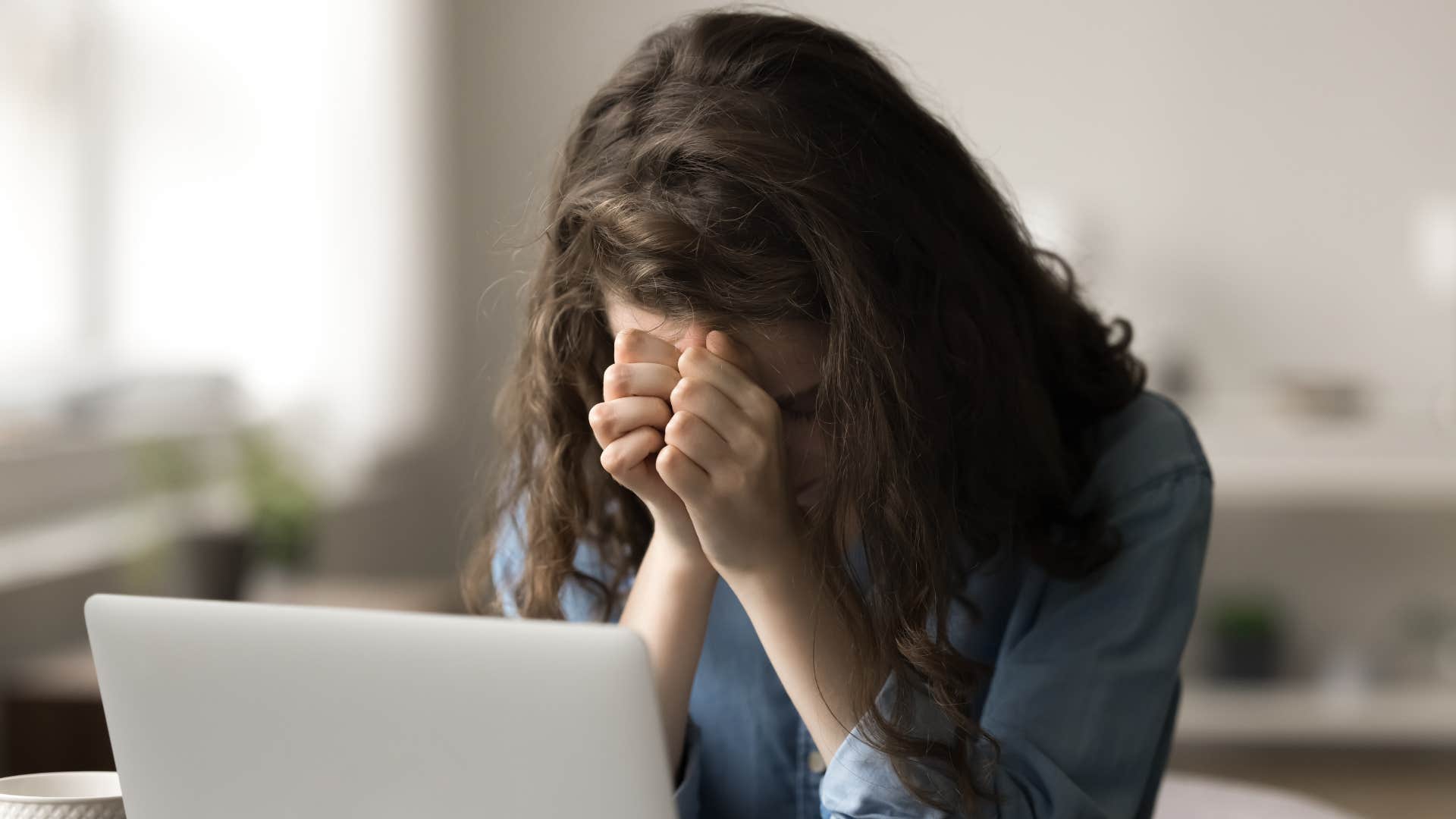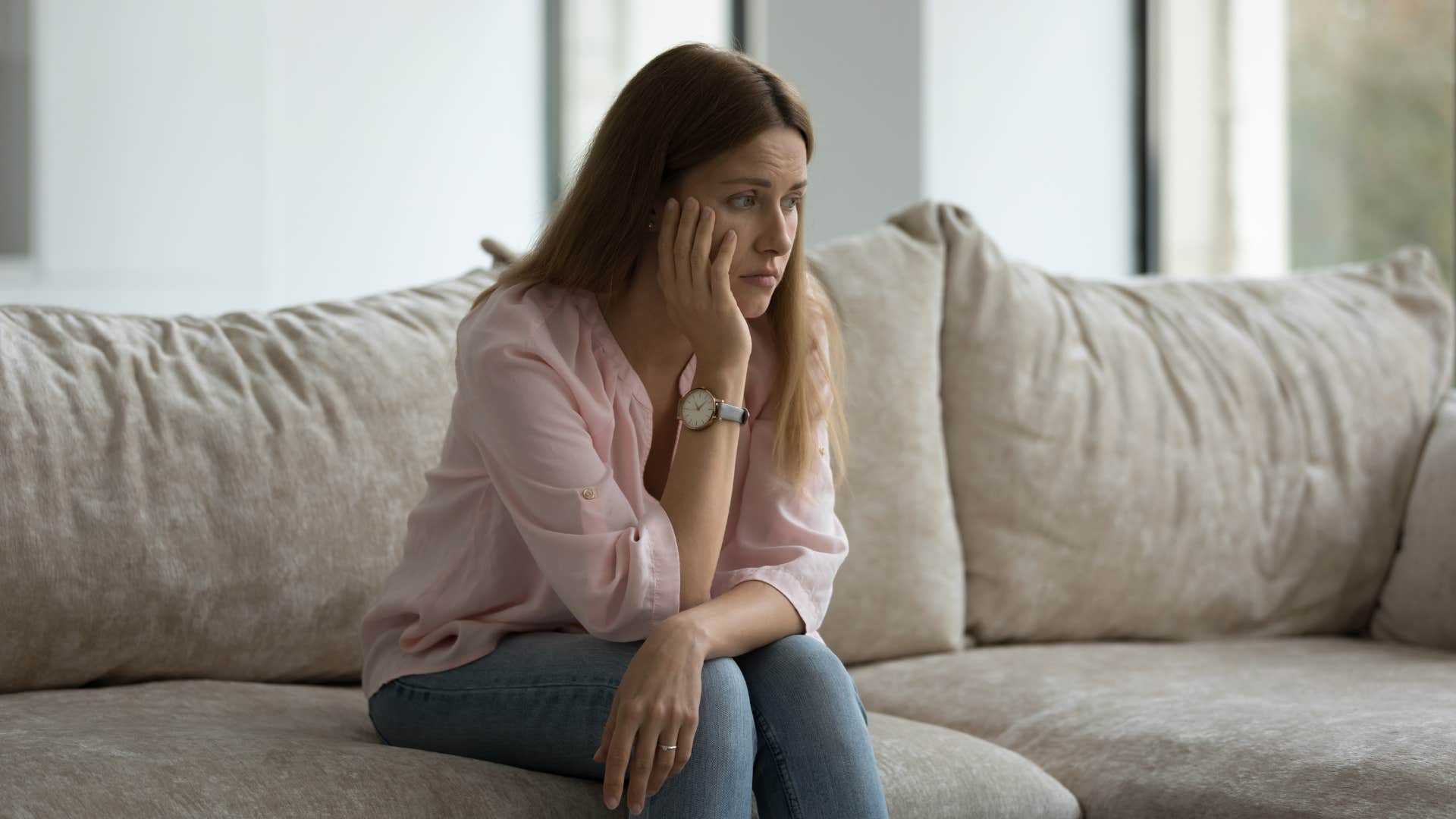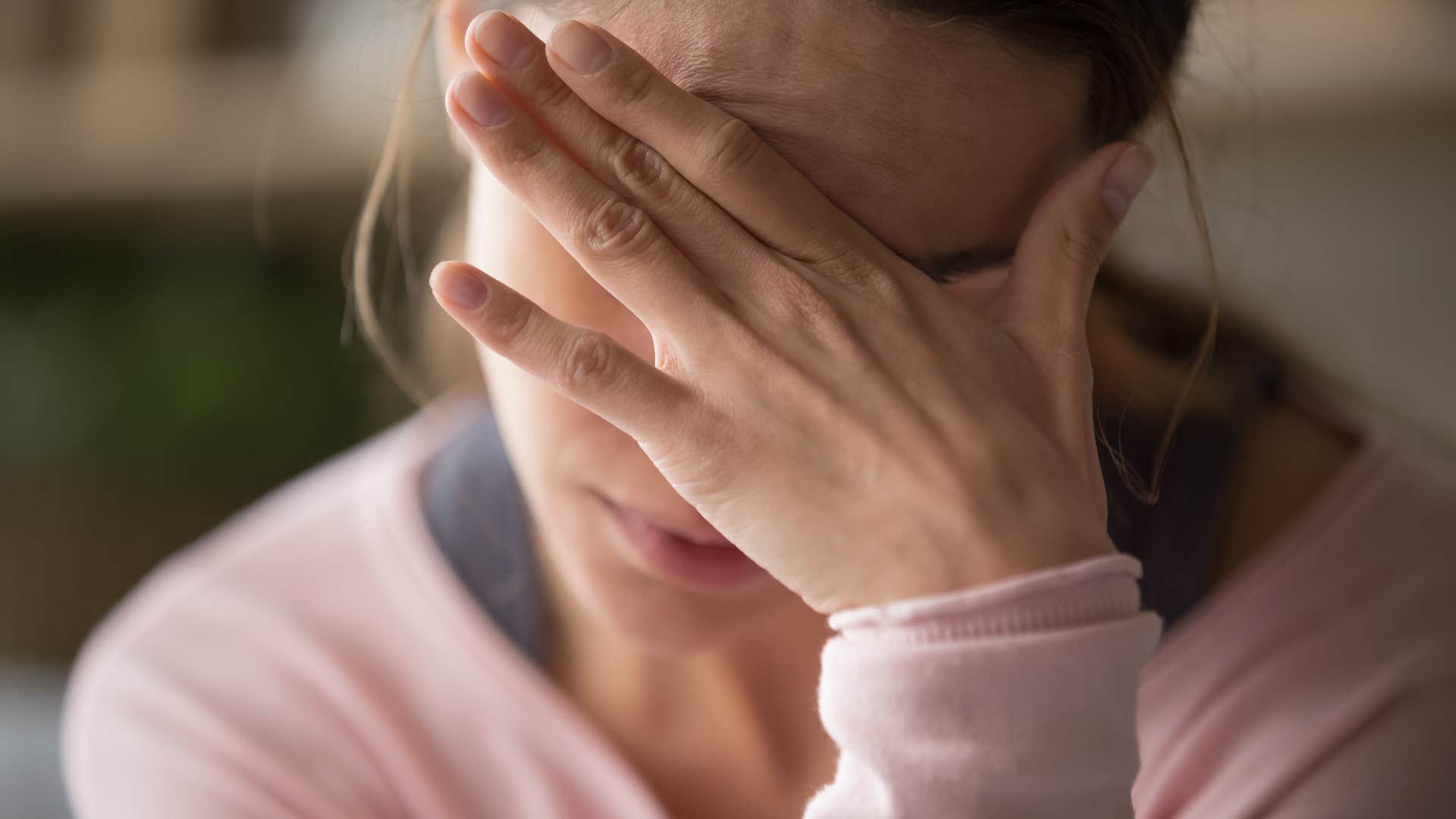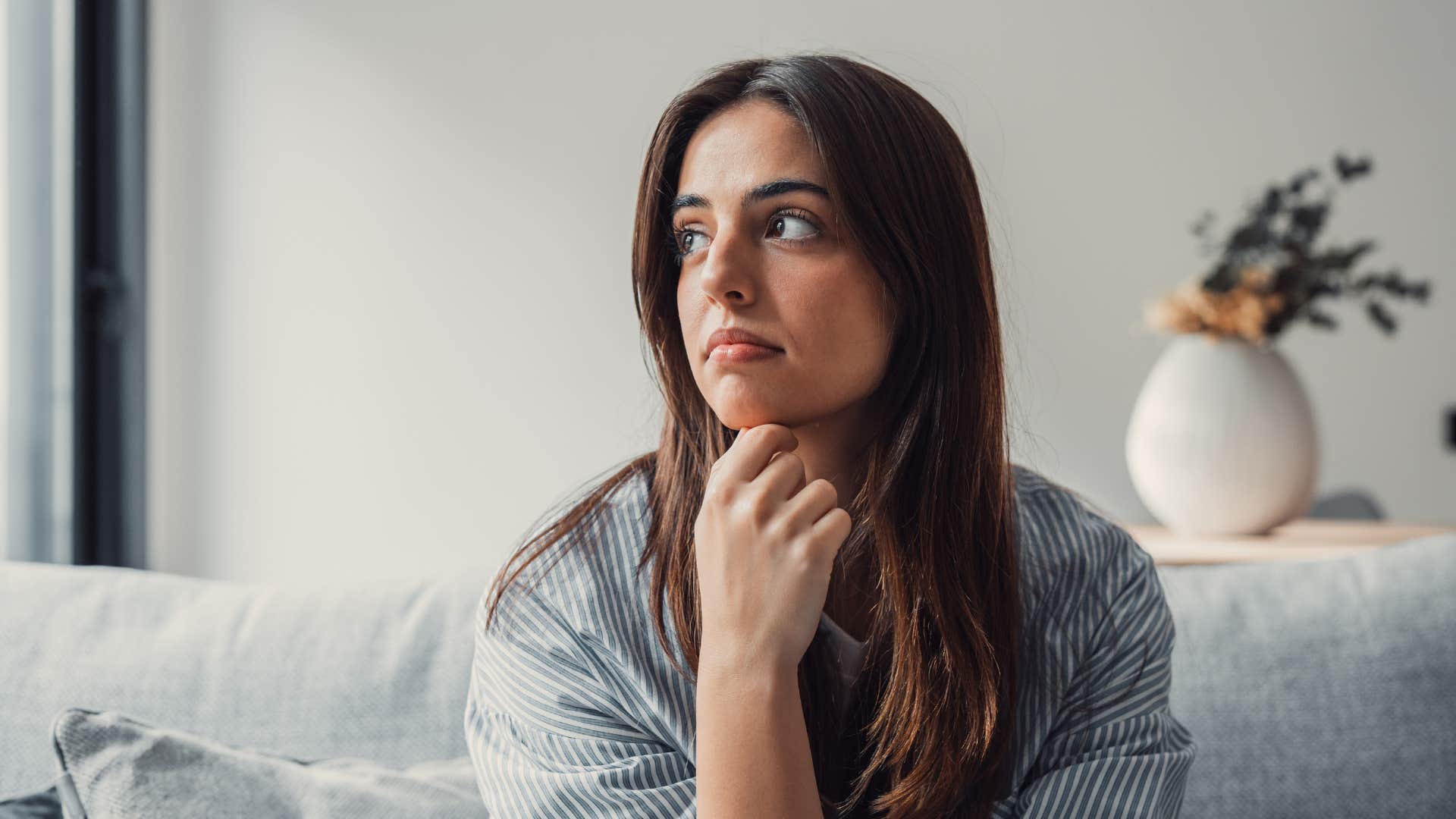7 Things That Seem Weird — But Are Totally Normal For Someone With Social Anxiety
How people with social anxiety move through the world.
 Mikolette | Canva
Mikolette | Canva Social anxiety disorder goes beyond being shy or introverted. It involves an extreme fear of social interaction, and it interferes with an individual's daily life. The symptoms usually begin around age 13 and persist into adulthood. However, most people with social anxiety disorder wait at least 10 years or more to get help, according to the Anxiety and Depression Association of America.
This is mostly because many of those with anxiety have hidden social anxiety, which is when people actively hide how fearful they are. Whether you think you may have social anxiety or suspect that someone you know might, here are some of the most common hidden social anxiety disorder symptoms.
Here are things that seem weird but are normal for someone with social anxiety:
1. They imagine embarrassing themselves
 fizkes / Shutterstock
fizkes / Shutterstock
Whether they're about to meet a new person or they're walking into a social gathering, people with social anxiety disorder often imagine scenarios where they embarrass themselves in front of others. They worry that they'll say or do the wrong thing, and they picture that behavior horrifying other people.
2. They avoid situations in which they'll be judged
 fizkes / Shutterstock
fizkes / Shutterstock
Social anxiety causes people to think things like, "Other people will think I'm stupid," or, "I'll mess up and everyone is going to think I'm a loser." Their extreme fear of rejection or being judged causes them to steer clear of uncertain social situations whenever possible.
Research showed that this avoidance behavior stems from an intense fear of social situations and the potential for negative evaluations, leading individuals to avoid or escape these scenarios to reduce their anxiety. The core component of social anxiety involves an approach-avoidance conflict, where individuals want to connect with others but also fear being judged negatively.
3. They only feel comfortable with a few specific people.
 Yuri A / Shutterstock
Yuri A / Shutterstock
Most people with social anxiety feel comfortable with a few specific individuals, such as a best friend, a parent, or a sibling. Interacting with other individuals can lead to a serious spike in anxiety. Often, taking a "safe" person to the grocery store or a social gathering makes interactions a lot less daunting.
4. They worry that other people will notice their anxiety
 fizkes / Shutterstock
fizkes / Shutterstock
Whether they speak up in a meeting or try to make small talk with an acquaintance, people with social anxiety worry that their anxiety is noticeable.
They tend to experience physical symptoms such as a flushed face, sweaty palms, trembling hands or shortness of breath, and they're convinced that everyone else can tell when they're nervous.
5. They experience particular social fears
 fizkes / Shutterstock
fizkes / Shutterstock
For some people with social anxiety, the fear is contained to public speaking. But others experience extreme anxiety over things like writing in front of others or eating in public places. Many people with social anxiety fear talking on the phone as well.
To minimize the risk of negative evaluation, people with social anxiety often avoid social situations or activities where they feel vulnerable. Researchers concluded that some individuals may also engage in safety behaviors, such as rehearsing what they will say or avoiding eye contact, to reduce their anxiety in social situations.
6. They criticize their own social skills
 Ground Picture / Shutterstock
Ground Picture / Shutterstock
People with social anxiety spend a lot of time analyzing their social interactions. They replay conversations in their minds over and over and scrutinize their communication. They exaggerate their flaws and judge themselves harshly.
Research confirmed that individuals with social anxiety disorder often express biased negative self-appraisals of their social skills, even when objective observers rate their performance as competent. This discrepancy stems from cognitive distortions and self-perceptions that are strongly linked to the disorder's maintenance.
7. Their thoughts often become self-fulfilling prophecies
 Perfect Wave / Shutterstock
Perfect Wave / Shutterstock
The negative thoughts associated with social anxiety often turn into self-fulfilling prophecies. Someone who thinks, "People always think I'm weird," may stick to themselves during social engagements. Their aloofness may discourage others from talking to them, reinforcing their belief that he or she is socially awkward.
Social anxiety is a very treatable condition. Therapy, medication, or a combination of the two can often alleviate the symptoms.
If you think you may have social anxiety, talk to your doctor. A physician can rule out medical issues that could be contributing to the symptoms and can refer you for appropriate psychological treatment if necessary.
By recognizing these hidden social anxiety symptoms and seeking help, individuals can overcome the challenges of social anxiety disorder and lead fulfilling lives.
Amy Morin is a licensed clinical social worker, psychotherapist, college psychology instructor, and internationally recognized expert on mental strength. Her advice has been featured on Today, Good Morning America, Time, Fast Company, Success, CNN, CNBC, and Fox News.

